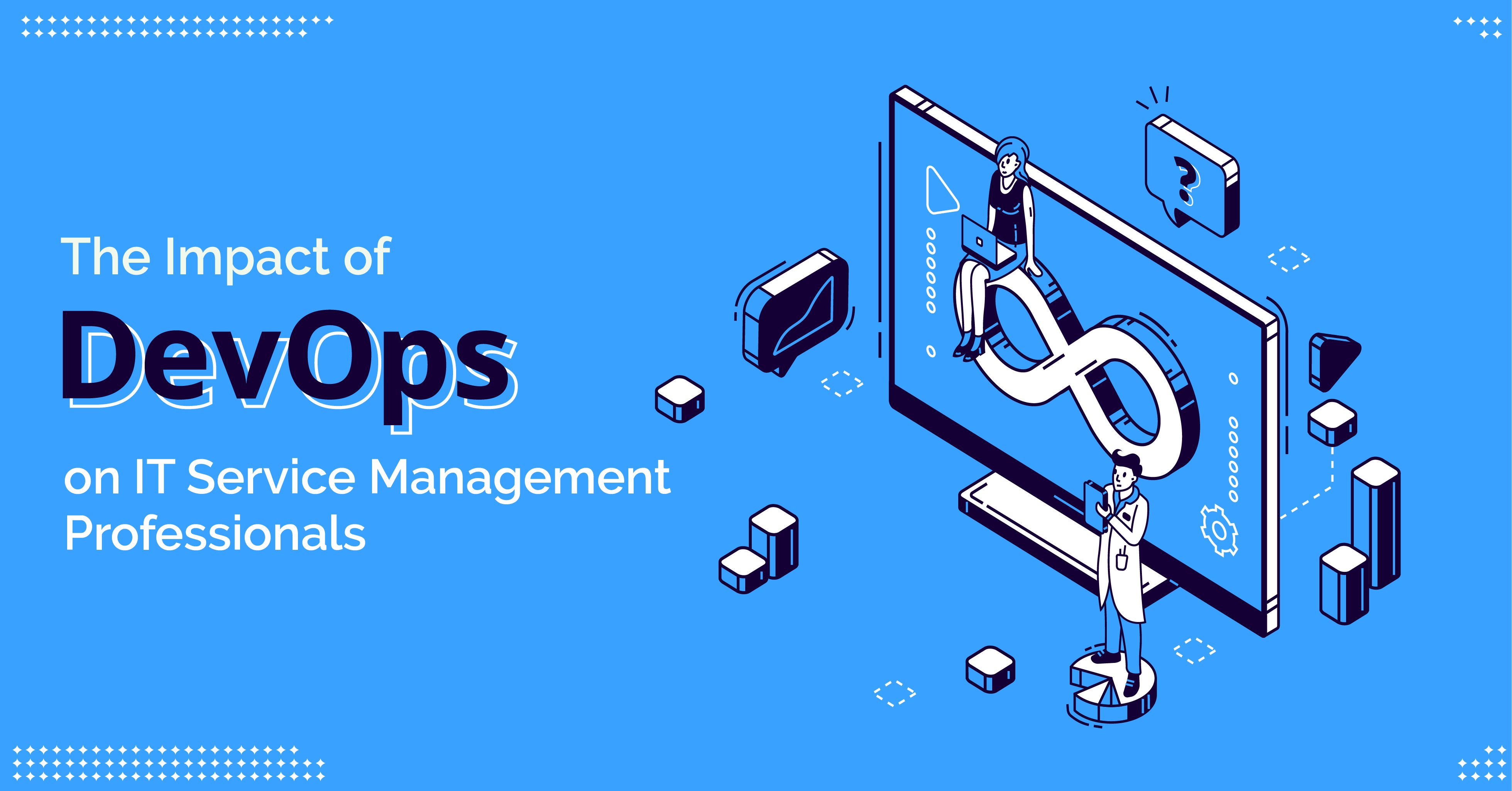IT service management services are the bridge between IT services, business operations, and customers. The ever growing technological advancements have brought a multitude of effective IT service management solutions in the playing field. However, one advancement has shaken up the environment in the industry significantly for IT service management professionals – DevOps.
DevOps is a conglomeration of industry practices, philosophies, and various tools that boosts the organization’s’ capability of rendering applications and services at a higher speed. DevOps is designed to cognitively enhance the products and services of an organization, so that it can churn out effective results at a faster pace than the traditional IT service management services.
Since DevOps has come into existence, IT service providers have seen a huge impact in their demands, and to coexist with DevOps, this impact must be explored and understood by professionals.
Functions and Impact of DevOps
DevOps, in the most basic terms, adopts the image of comprehensive and conclusive system thinking. It functions on an end-to-end system that all the parties involved can see and analyze, which is different from IT service management, which functions of siloed and interconnected operations.
Here are some of the main ways in which DevOps differs from IT service management.
1. DevOps’ major requirement is of a “loop-structure”, where it operates by amplifying the feedback received from the customers, and delivering value to them by implementing intuitive solutions based on the feedback which highlights the various inconsistencies in the IT service management process.
2. DevOps’ primary function is to deliver value to the customers. It is more flow-oriented and focuses on how to deliver satisfactory results in the hands of the customers. IT service management is more resource-oriented, and functions on making the process of change management more efficient.
3. DevOps’ value stream comes from its product teams, which includes the billing professionals, inventory management, and order delivery. IT service management, on the other hand, has operational silos, which are more focused on processes and control.
What to do as an IT Service Management Professional?
With DevOps becoming more relevant day by day, traditional IT service management services are getting sidelined and DevOps is being preferred more by modern businesses.
Adopting and implementing DevOps might seem too straight forward an answer for this question, but it is the only way IT services can coexist with DevOps. Here’s how.
1. Distributing or sharing the value streams is the first step in being collaborative with the DevOps structure for IT service management professionals. This way, they no longer will be the “third-wheel” between the customers and the organization. This means making all the information and data available pertaining to an organization means that a central team is responsible for monitoring the operations without getting in the way of progress.
2. Change Advisory Boards (CABs) are the primary source of blockade for any IT service management firm. For making even the smallest changes, their approval is necessary, which is not compatible with the operating architecture of DevOps. Hence, the updated model of functioning of IT service management firms should move away from CABs, and be more transparent to the clients and customers alike.
3. Learning and experimentation is something that IT service management has avoided. To foster learning and provide more streamlined results, IT professionals should be more open to building and establishing newer structures, and fostering experimentation to learn or discover new insights into the market trends. One very effective example of this is Hackathons, which give teams or individuals the liberty of autonomous development for their tasks, without any holdbacks from the management.
Lead With Example – An Efficient IT Organization is More Than “Sum of the Parts”
Procured tooling, skilled individuals, and experience in the domain – All these elements are imperative for any IT service management organization. However, relying on only these elements is not going to be effective in terms of delivering value to the clients or customers.
Making use of DevOps, IT service management professionals can proactively collaborate with the organization like a well-oiled machine and enhance the efficiency of the shared processes, thus, elevating the end results.
About ParamInfo
Implementing DevOps and leveraging its many benefits to grow a business should be the aim of IT service management solutions. ParamInfo is an IT service provider that understands the relevance and importance of DevOps, and provides personalized IT management services to the client. To know more about our services, click here.
